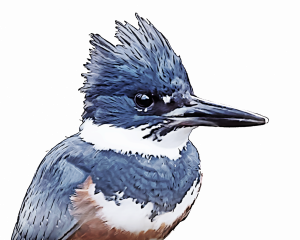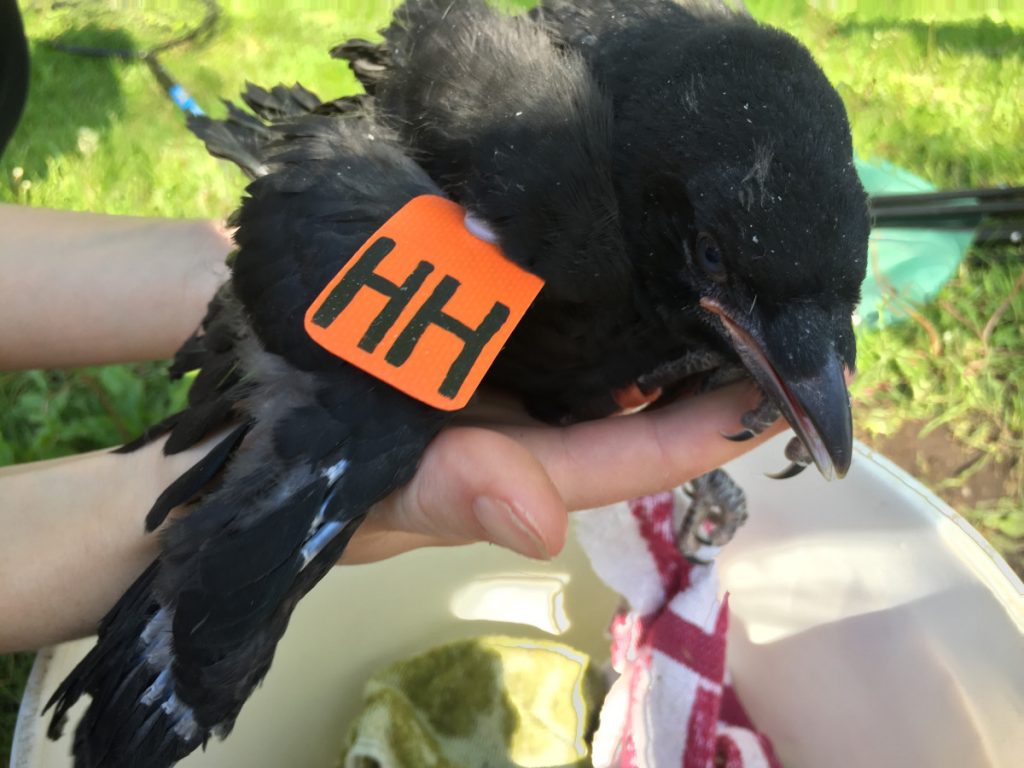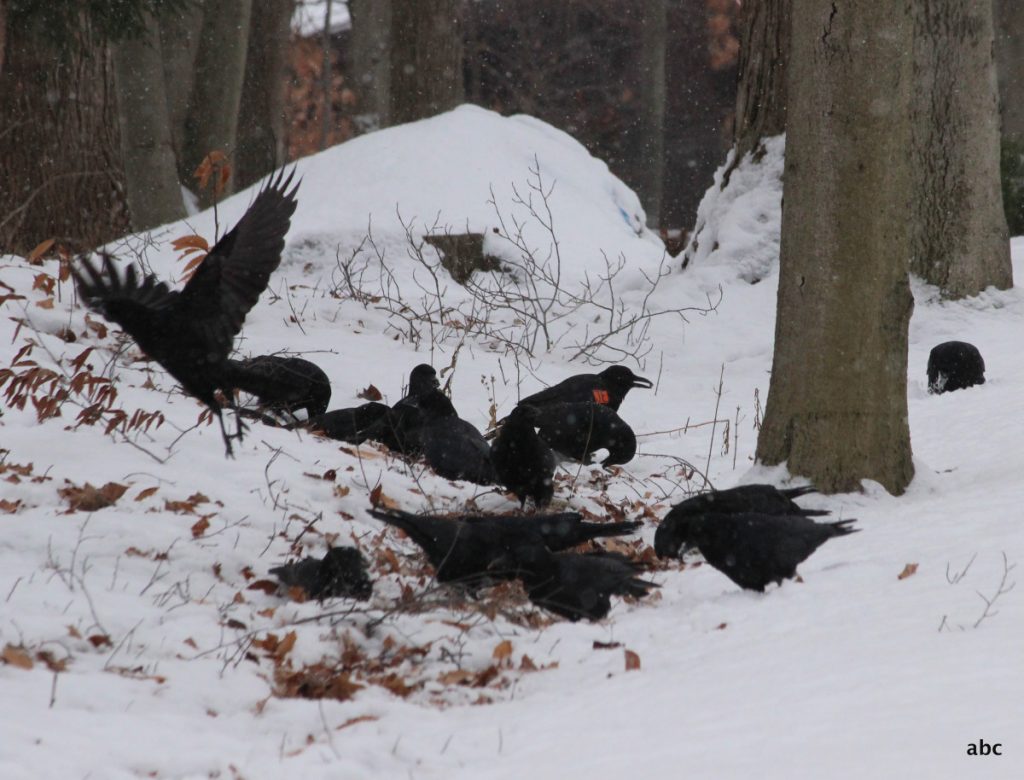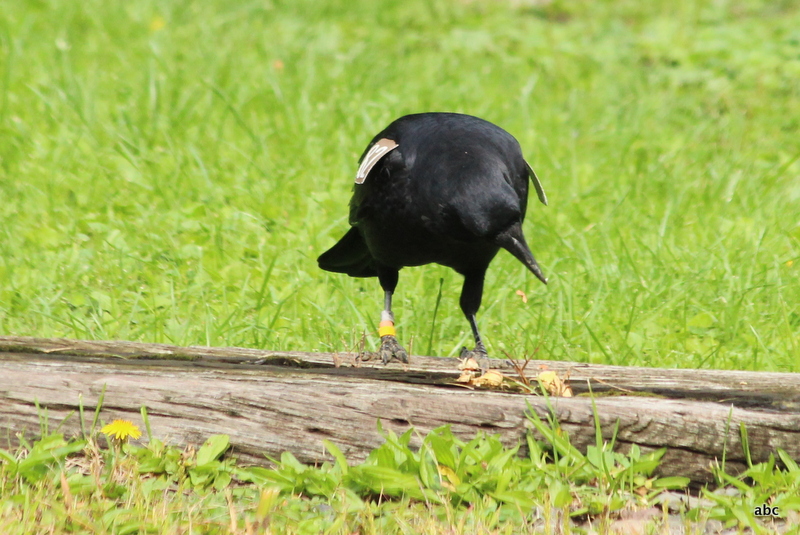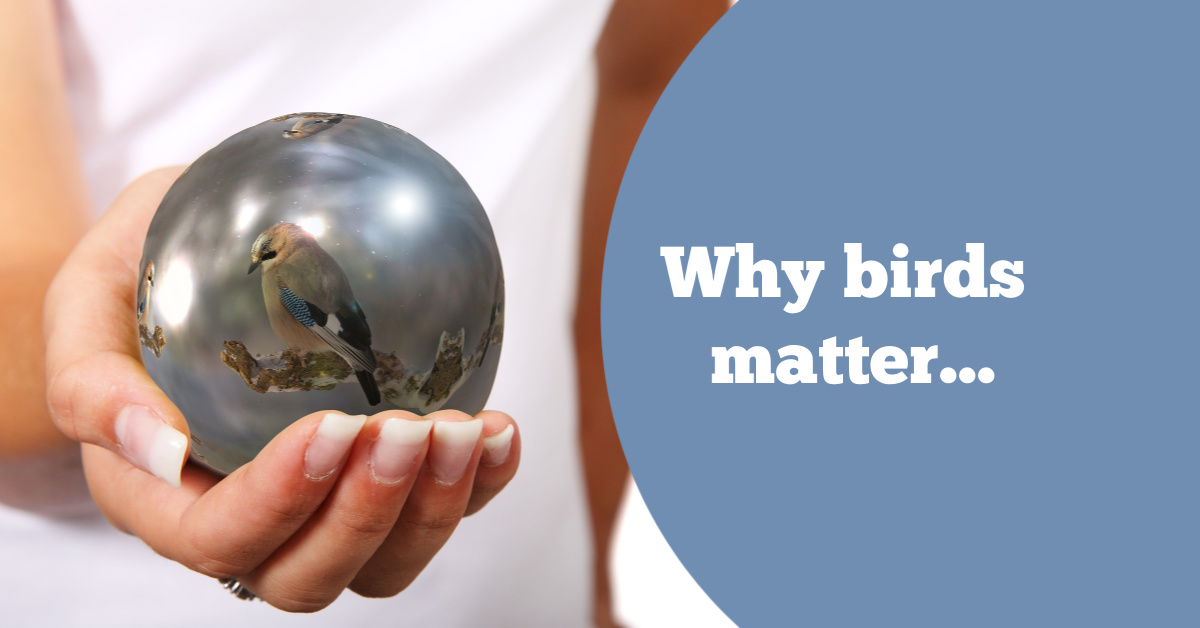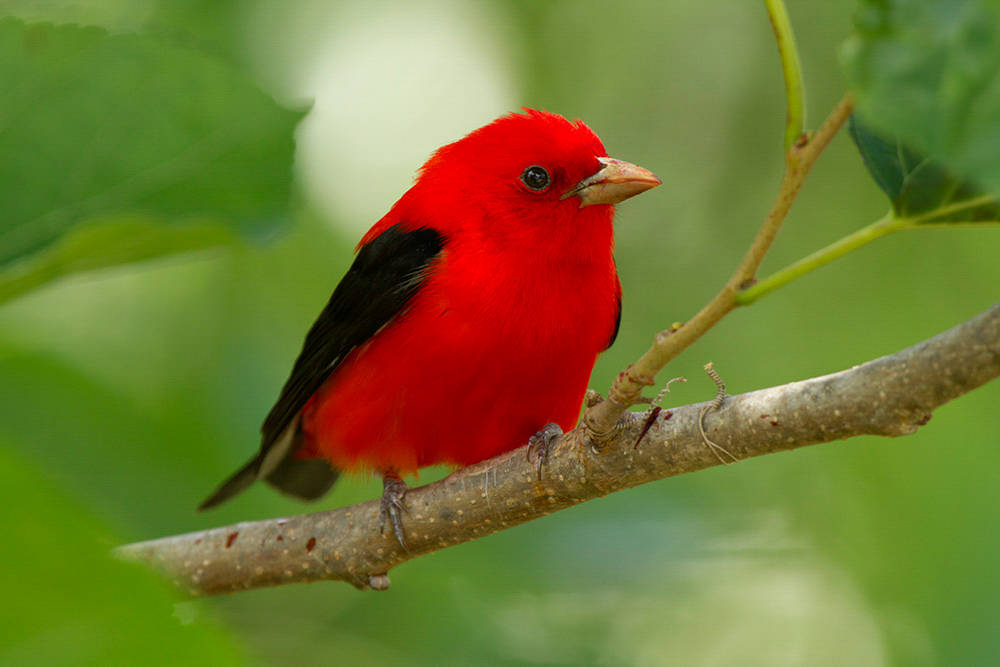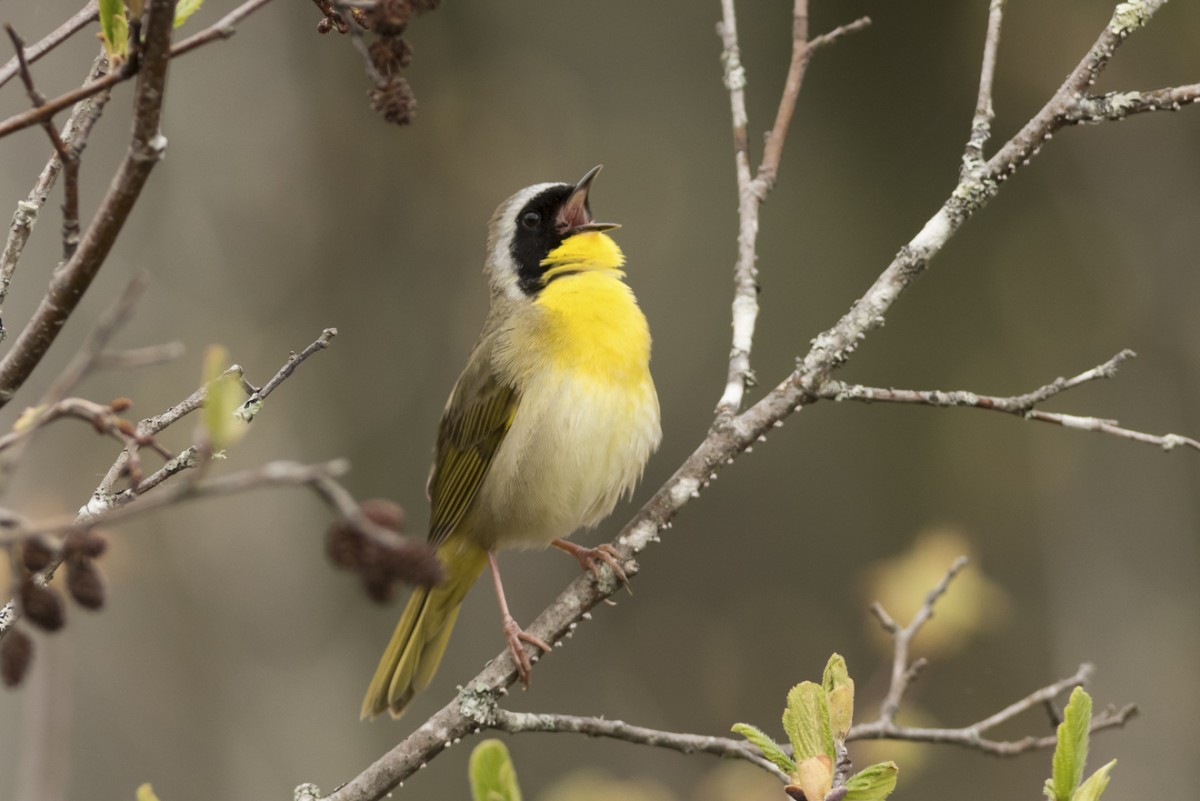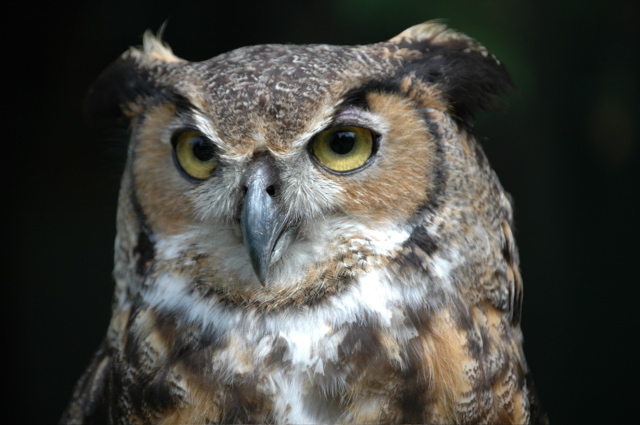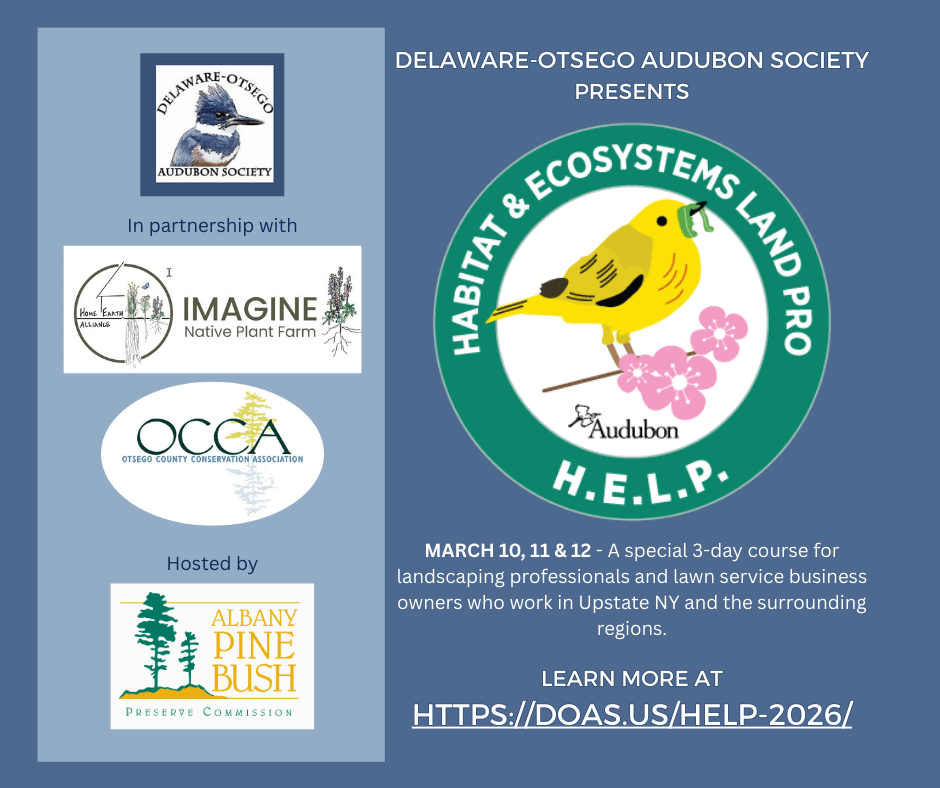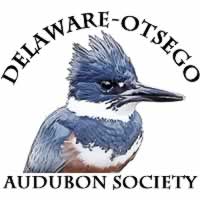Opportunities and Challenges of Anthropogenic Change
Anthropogenic change, especially urbanization and climate change, is challenging all organisms, including humans, to adapt. Evolutionary ecologists predict that behaviorally more flexible animals, especially those that learn and transmit information socially, will adapt most successfully. Crows and ravens (Corvus sp.) certainly fit our idea of behaviorally flexible, generalist species with plenty of cognitive capacity; indeed, a number of Corvus species are now well-established in urban areas worldwide.
Join DOAS on Friday, November 19 at 7:30pm on Zoom for this special program (FREE and open to the public).
Based on a 30-year study of one population in Ithaca, NY, Anne Clark will introduce you to the complex social world of our American crows, how they do or don’t fit our expected “urban adaptor”, but also how even small cities are dynamic environments that continue to challenge them. Finally, she will extend the discussion to crow species globally, to the scientific and ecological value of this surprisingly diverse group, and to the possibility that many crow species could disappear in the face of complacency and anthropogenic change.
Register today at https://us02web.zoom.us/webinar/register/WN_E9-Ix1RgTjuw8ec4dxFtoA
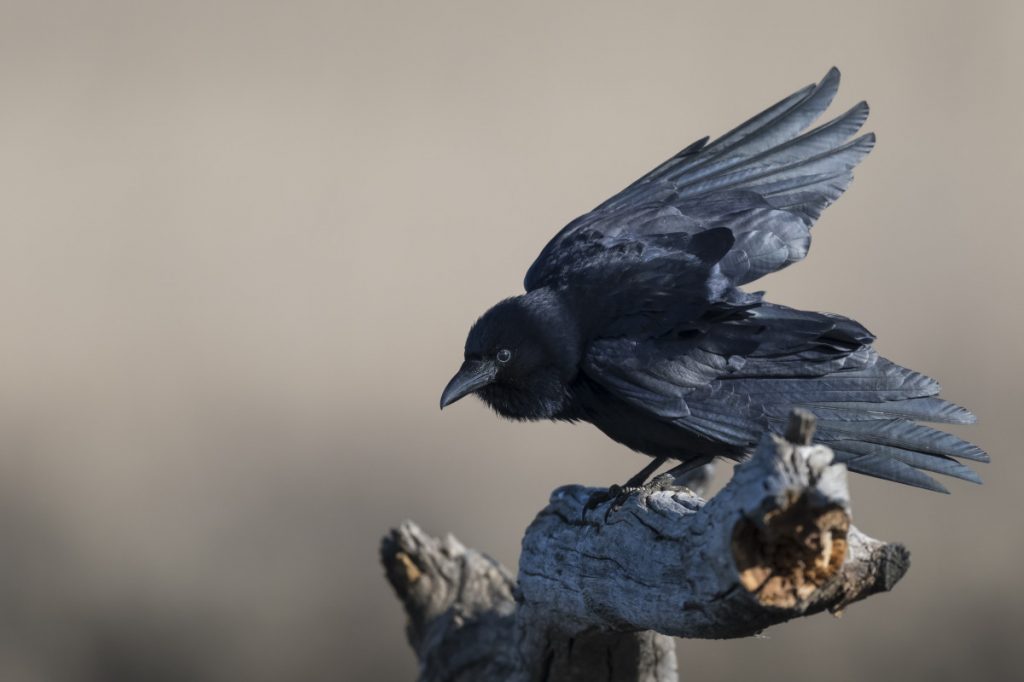
About the Presenter
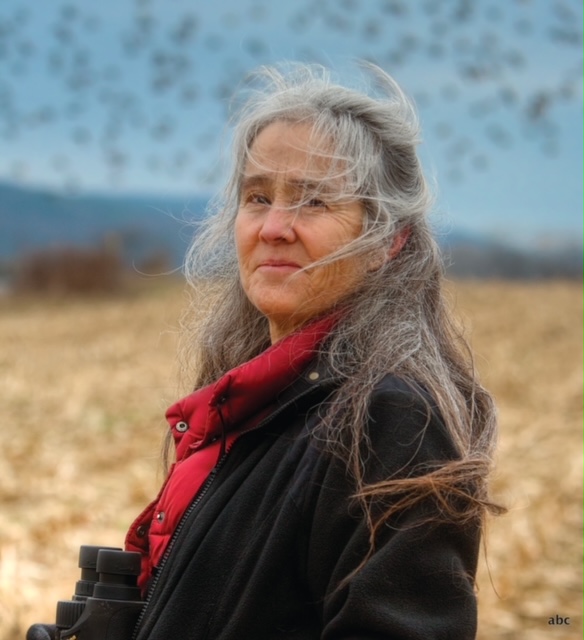
Anne Clark is a behavioral ecologist broadly interested in the evolution and ecology of animal social behavior. She has studied scent signals and social behavior of prosimians for her PhD (U. Chicago) and post-doctoral research (U. Witwatersrand, South Africa), but also parent-offspring relations in birds, yawning in parakeets (thermoregulation and contagious social behavior!), and for the last 20+ years, the social ecology of American crows in suburban Ithaca, NY. Ongoing studies with her wonderful grad and undergrad students include genetics, communication, learning and personality. The advent of West Nile Virus in our long-term study population of crows has added a focus on social and demographic effects of injury and disease for Anne and her collaborator, Dr. K.J. McGowan. Her students have extended crow research to new species: Fish Crows, Mariana Crows and Large-billed Crows. At Binghamton University, she has taught classes in “Animal Behavior”, “Primate Behavioral Ecology” and “Behavior and Disease” plus diverse graduate seminars.
